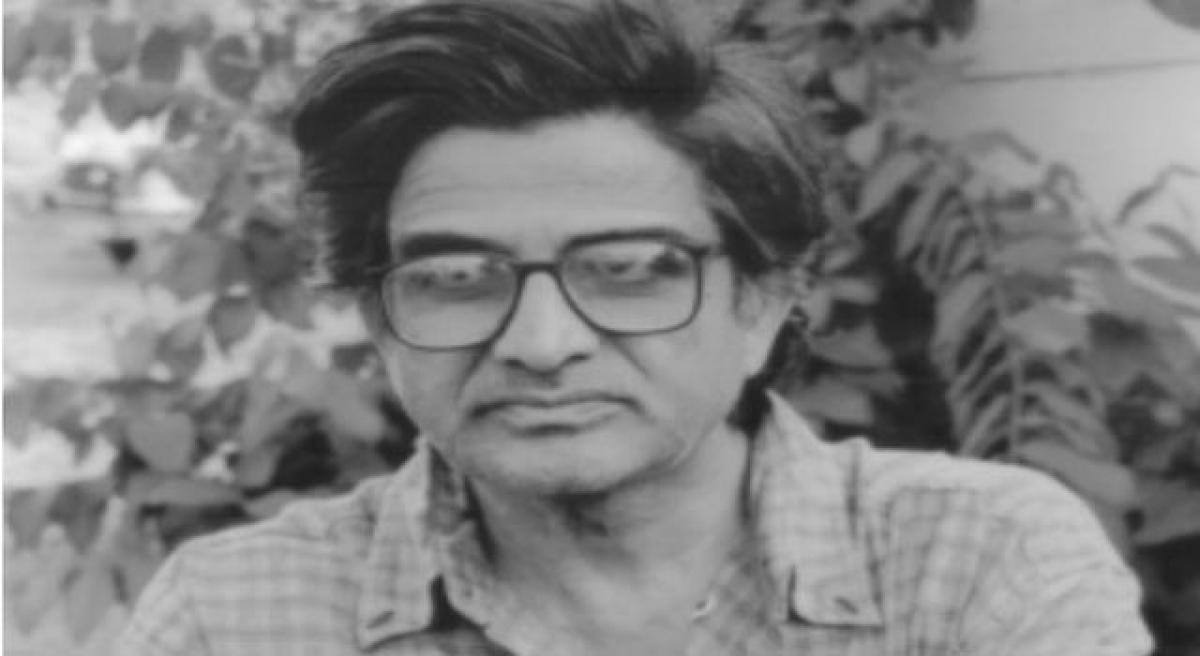Just In

Balagopal needs no introduction or prefix or suffix required to his name. He is a well-known champion of the cause of human rights in the country.
Balagopal needs no introduction or prefix or suffix required to his name. He is a well-known champion of the cause of human rights in the country. He advocated a principled attack on violence, perpetuated by varied forces – state or non-state political actors. He was unceasingly diligent in pursuit of upholding human values and securing justice through courts of law till his last breath. A vast void has remained unfulfilled in the realm of legal rights movement against State oppression, deprivation and subjugation of the marginalised sections, particularly in the case of adivasis after his death.
Balagopal emphasised a broader attention towards violence, both the State physical violence and its structural violence on equal footing in understanding and addressing the human rights issues. Unlike other civil liberty activists, he raised a fundamental human rights question that one form of violence is not more justifiable to purportedly get rid of another form of violence. Does the human rights movement defend the choice and implicitly sanction taking of life? Or does it defend the right to life and lay itself open to the charge that it is implicitly defending or protecting structured iniquity?
Balagopal stood as a strong crusader for the adivasi movement for recognition of forest rights and ensuring the implementation of Forest Rights Recognition Act 2006 (FRA). He could get a favourable order from High Court of Andhra Pradesh seeking a direction to the implementing authorities to issue forest land titles to eligible forest dwellers when a writ petition filed in 2007 by former forest bureaucrats to stall the operation of the FRA. He fought against neglect of tribals, and the unfortunate loss of hundreds and thousands of lives of adivasi children and adults every year due to the failure of government to ensure access to safe drinking water and basic medicare in the agency areas.
He fought for prevention of epidemics taking toll of adivasis year after. He successfully argued that gastro enteritis deaths claiming several hundred lives of Gonds in Adilabad were a result of government failure to ensure conditions necessary for normal life scheduled areas. More importantly, he also articulated how adivasi opposition to the Polavaram project that is destroying their lives and identity is to be seen as a democratic demand.
He came to the rescue of several tribal households when the government was dispossessing them from their lands and habitats without recognising their rights over resources and the free and informed consent of Gram Sabha in the agency areas of East and West Godavari districts. He argued on behalf of hapless tribals before the High Court and obtained a stay of illegal process of land acquisition.
Balagopal provided legal aid to several needy tribals in the higher courts enabling them for restoration of thousands of acres of alienated cultivable land from the possession of non-tribals. He particularly supported the adivasi movements struggling to get legitimacy for their lands in the Scheduled Areas. He was instrumental for several public interest litigations (PILs) and securing pro-tribal judgements from the High Court of AP.
For instance, the authorities under tribal protective Land Transfer Regulations used to dismiss the claims of tribals for repossession of lands held by non-tribals by applying the general principle of resjudicata (no re-enquiry is permissible once the subject matter of the dispute was already adjudicated). However, Balagopal succeeded in getting a favourable order from High Court in 2003 to put a restriction on the use of such general legal principle while adjudicating the tribal land disputes by the authorities.
Balagopal strongly opposed the revenue authorities issuing protection orders instead of conducting enquiries either under 145 CrPC against the tribal occupants if peace was affected or leaving the owner of the property to get the occupants evicted by a decree of a civil court. The High Court of AP in 2008 held that the revenue officials had no legal authority to issue such protection orders in favor of non-tribals and against tribal land occupations.
Balagopal’s advocacy skills helped to arrest the illegal migration of non-tribals and settling in the Scheduled Areas by constructing houses in violation of LTR. The High Court passed a judgement (WP No 3373/2000) nullifying the order of government facilitating construction of houses and establishments by non-tribals in the agency areas. The Supreme Court also dismissed the Special Leave Petition (SLP 28423/2011) filed by the unsuccessful non-tribals of the case at the High Court.
He was a support to tribals and supported the present agency legal system in a case adjudicated by the High Court. The aggrieved parties moved civil appeals (CA No 5030-5036 of 2004.) against the ruling of High Court and finally the Supreme Court upheld the judgement of AP High Court in continuing the judicial power of revenue authorities to adjudicate civil matters arising from the Scheduled Areas.
Balagopal strongly supported the cause of thousands of families of Gothi Koyas affected by violence in Chhattisgarh moving to forest areas of Telangana and Andhra Pradesh in search of livelihood. He opposed the oppressive and violent acts of the forest department and burning their habitats in the name of forest land encroachments. Following his principles is the real tribute to him.
By Dr Palla Trinadha Rao

© 2024 Hyderabad Media House Limited/The Hans India. All rights reserved. Powered by hocalwire.com







